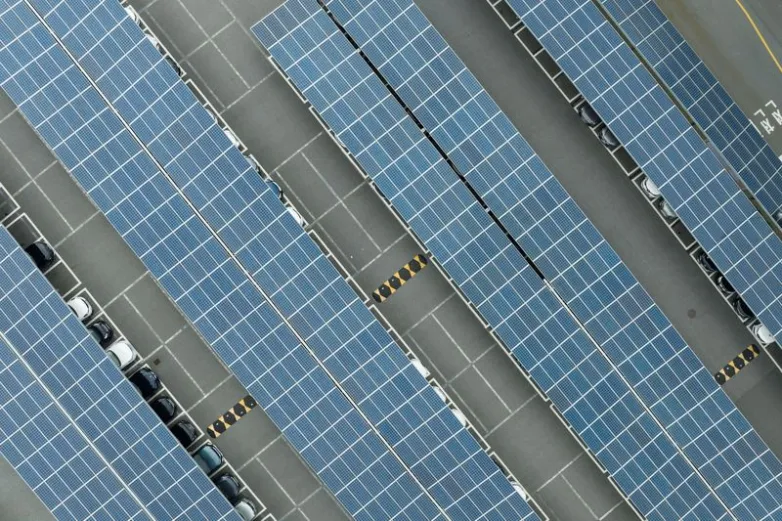Tariffs Threaten to Undermine Global Shift to Clean Power
- Protectionist policies limit flow of goods as well as capital: study
- Such procedures can add 25% to solar module prices by 2030

Nationalistic policies to secure manufacturers of solar panels as well as various other renewable innovations intimidate to undermine global efforts to battle climate change, a new study states.
Prices for solar modules could be as long as 25% more than they would certainly or else be by 2030 as a result of tolls and various other protectionist policies, according to the term paper released in Nature on Wednesday. The global solar supply chain saved the globe as least $67 billion in manufacturing expenses in between 2006 as well as 2020, the study estimates.
Protectionist actions would certainly limit the free flow of goods, talent as well as capital, reducing the global energy transition as well as urging more fossil fuel consumption, stated John Helveston, writer of the study and aide teacher of engineering management and also systems engineering at George Washington University.
" It's more regarding just how promptly can you get the cost down to as reduced as feasible to make these technologies eye-catching," Helveston claimed in an interview. "And if they're not getting down quickly enough, we're going to keep using fossil fuels."
Various other Renewables
He stated that while the study focused on solar, the impact additionally puts on various other renewable energy industries consisting of wind as well as electric vehicles.
The solar market has been involved in trade conflicts for more than a decade that have actually helped shape the global supply chain for clean power's killer app.
In 2012, US President Barack Obama slapped duties of as long as 249% on Chinese photovoltaic panels in an effort to prop up American factories. China struck back the list below year by embracing its very own import taxes on US polysilicon-- the key product for making the panels.
Assisted by a government that supported a costs surge on solar, China arised victorious, making up the manufacture of 79% of the globe's panels, according to BloombergNEF data.
When Donald Trump introduced a trade battle with China in January 2018, solar energy equipment was among the very first items targeted. And when Joe Biden took office in 2021, he once more place China's solar sector in US crosshairs, accusing a significant silicon supplier of using forced labor in the Xinjiang region.
As the solar industry looks for to prevent ethical problems by offering documents showing their products are free from forced labor, the study suggests additional work needs to be done to boost traceability.
Helveston stated low-carbon modern technologies could be a location for the United States and China to collaborate, considered that they are not as politically delicate as the semiconductor market, which has actually been the target of sweeping United States restrictions as a result of protection risks.
The study also advised against relying upon a single or a few countries just for supply chains. "We need to have local makers for resilience objectives," Helveston said. "Yet we don't require to be doing that at the expense of also patronizing China. We need to be doing both."
Also read

